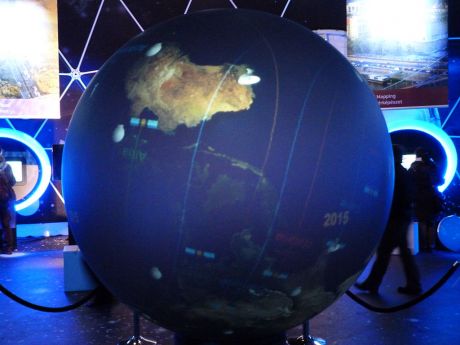Copernicus is a European Programme established for Earth Observation to
provide core services. Applications include environment protection, land
and water management, health, transport, climate change, sustainable
development, civil protection and tourism.
The space component of Copernicus has been developed and is managed by the European Space Agency (ESA). However, the Copernicus in-situ component is based on an observation infrastructure owned and operated by a large number of national and European stakeholders.
Some stakeholders are cooperating within the framework of European and international networks. The EU-funded consortium
GISC (GMES in-situ coordination) acted between relevant data providers to ensure cost-effective and sustainable open access to Copernicus in-situ data.
GISCs primary objective was to develop methods enabling networks to provide the required in-situ data for Copernicus services. An approach for the integration of data assets into a sustainable framework was explored in addition to providing proof of concept for the framework's operations architecture.
But first, the needs of different services for land, marine environment and atmosphere monitoring as well as emergency management were identified and prioritised. The comprehensive catalogue of in-situ data needs was the result of a consultation process with stakeholders of the existing Copernicus core services.
These findings were the starting point for further analysis of in-situ data requirements. GISC aimed to identify data gaps, overlaps and critical constraints that need to be addressed in a fully operational framework. The report prepared formed the basis for an estimate of costs associated with the provision of in-situ data from 2014 onwards.
Lastly, GISC developed partnerships to ensure access to all the relevant in-situ data in a timely and sustainable way. To ensure their continuous engagement, partnership agreements were signed with EuroGeoSurvey, EuroGeographics, EuroGOOS and other European organisations.
The European Environment Agency's (EEA) open data policy was finalised to ensure that all in-situ data is handled consistently and transparently. Beyond the end of the GISC project, EEA aspires to continue to promote the sharing of in-situ data for Copernicus services when these will be fully operational.

